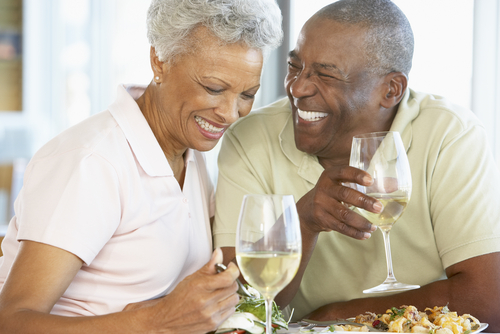People with diabetes often ask whether they can drink alcohol. Drinking in moderation has been shown to reduce the risk of heart disease, which would benefit people with diabetes who are at increased risk of the disease. However, any pattern of drinking can be harmful. The key word is moderation and use caution. For example, someone with diabetes should avoid drinking on an empty stomach or when blood glucose levels are low. While light drinking is usually not dangerous, too much alcohol can make diabetes harder to control and put your health at risk. With a few precautions and careful management, people with diabetes can also enjoy a drink.
If you are on diabetic medication, make sure you check in with your pharmacist and physician to insure any medication that is prescribed does not have contraindication to alcohol consumption.
When consuming alcohol your choice of alcoholic beverages is very important. Some alcoholic drinks are less detrimental than others for maintaining goals of proper body weight, heart health and blood sugar levels. For non-alcoholic beverages you should choose diet soda, diet juice, diet tonic water and club soda instead of carbohydrate-rich mixed drinks such as regular soda and juices. For alcoholic drinks, try dry wines instead of sparkling wines, dessert wines, sweet wines and wine coolers.
Consuming alcohol when you have diabetes poses another danger to your health. For instance, if you take insulin or diabetes medicine by mouth, too much alcohol may lower your blood sugar for up to 12 hours after drinking, especially if you drink on an empty stomach or increase your physical activity.
If you drink and have diabetes, do it in moderation. Health.Gov recommends that for a man, moderate drinking is up to two drinks per day; for a woman, one drink. A drink is a 12-ounce beer, 5-ounce glass of wine or 1.5 ounces of distilled spirits (such as vodka, gin or rum).
If you have diabetes and plan to drink:
- Never drink alcohol on an empty stomach. Always eat some form of carbohydrate (not too much) with your drink, such as crackers, bread or pretzels.
- Avoid mixed drinks, such as margaritas, sweet wines and piña coladas, which can contain high amount of carbohydrates.
- Carry glucose tablets or another sugar source. Glucagon shots may not work in cases of hypoglycemia that are due to alcohol.
- Sip your drink slowly.
- Test your blood glucose 1 or 2 hours after drinking and again before going to bed.
- Talk to your health care provider.
- Always carry identification that says that you have diabetes.
- Drink plenty of water.
- Never drink and drive. Designate a safe driver, call a cab or use a car service such as Uber or Lyft.
Caloric and carbohydrate content of some popular drinks
| Drink | Calories | Carbohydrate (g) |
|---|---|---|
| Regular beer, 12 fl oz | 155 | 12.78 |
| Lite beer, 12 fl oz | 104 | 5.9 |
| Table wine, 5 fl oz | 125 | 3.8 |
| Dessert wine (including sherry), 5 fl oz | 236 | 20.1 |
| Whiskey (including Scotch), 1 fl oz | 70 | 0.03 |
| Martini, 3 fl oz | 195 | 0.5 |
| Margarita, 3 fl oz | 202 | 12.8 |
| Daiquiri, 3 fl oz | 166 | 6.2 |
Talk to your doctor about the effects of alcohol on diabetes, especially if you are taking medications or have other health concerns, like high blood pressure. With guidance and careful planning, you can control your diabetes in any situation.
Source
myhealth.va.gov
health.gov
